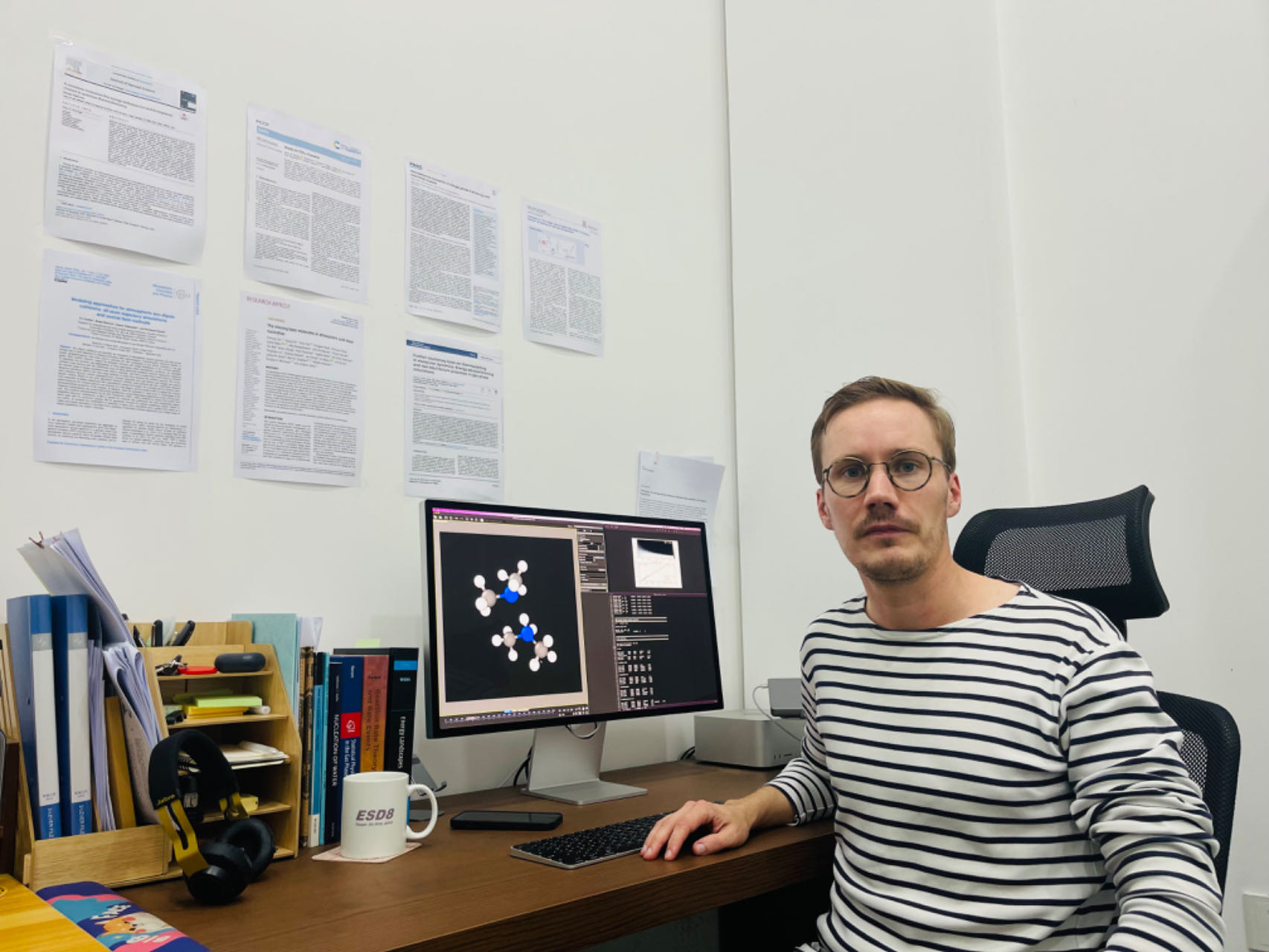Meaningful Scientific Journey in China
By LONG Yun & BI Weizi

Dr. Roope Halonen. (COURTESY PHOTO)
A young Finnish scientist, Dr. Roope Halonen, is one of those who came to Zibo, which draws visitors from all over the world this summer for a mouth-watering distinctive barbecue-style cuisine.
"I liked the friendliness and openness of people not only in my university but in every place in China. And the food is good both in Zibo and Tianjin, the city I live in now," he told Science &Technology Daily.
Rewarding experiences
Halonen is currently a special associate researcher at the Center for Joint Quantum Studies and the Department of Physics at Tianjin University (TJU), which he joined two years ago.
According to Halonen, it has been a rewarding experience at TJU, offering him a wealth of opportunities in research and personal growth.
TJU has provided Halonen with a supportive and conducive environment for his scientific pursuits. He enjoys total freedom in his research, allowing him to explore the ideas he is passionate about. Furthermore, he has found the lifestyle in China appealing, and the university's facilities and academic community align with his goals.
Halonen sees his study as an important role in atmospheric science. "The significant improvements have been observed in air quality in China's mega-cities over the past decade," he noted, adding that this positive change proves to be the power of science and technology to address pressing environmental issues. "Science is a team sport," said he, noting that international sci-tech cooperation in the future will pave the way for "a sustainable and healthier planet."
Big fan of Sci-fi movies?
Halonen stands as an example of a young and passionate researcher who has dedicated his career to exploring the mysteries of the physical world.?
However, his story is not limited to a laboratory. Halonen's interests extend to the fields of science fiction, where he not only gets research inspiration, but also finds relevance in the ever-evolving relationship between science and society.
He used Christopher Nolan's movie?Interstellar?as a vivid example. What attracts him about the movie is how it portrays science and physics, especially in the context of space travel. He appreciates that this movie's willingness to explore the unknown reflects the essence of scientific discovery. Halonen believes that scientists should embrace the passion of discovering the impossible, as it is often through such exploration that groundbreaking breakthroughs occur.
"Many futuristic ideas from sci-fi literature and films have inspired real-world innovations, from self-driving cars to the Internet," he noted, adding that progress often occurs and can be influenced by creative visions of the future, despite some predictions that may seem remote.
In terms of the public's understanding of science, He highlights the importance of trust because science is not infallible and must be open to mistakes and uncertainties, while trust is essential when complex scientific findings to be communicated to the public. Halonen believes that scientists actively engaging in improving their communication skills is vital.
This article is also contributed by TJU.?







